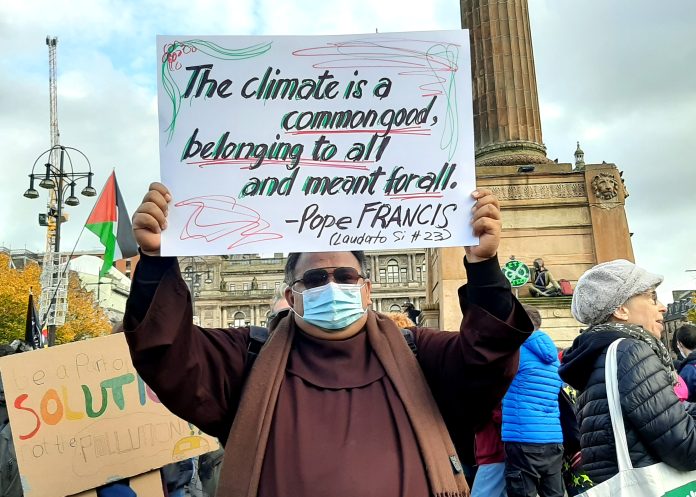The theme “Listening and Journeying Together” for this year’s Laudato Si’ Week holds a deeper meaning given the current poor state of the Filipino nation.
These words reflect on “bringing the human family together to protect our common home” in the context of addressing the climate crisis. It aims to highlight how Catholics worldwide must celebrate the progress made in bringing Pope Francis’s landmark encyclical to life and to unite for a stronger commitment for climate and environmental action.
With less than a decade to go before 2030, when the Sustainable Development Goals are supposed to be met, the state of our common home remains far from what it should be. Climate change impacts are projected to worsen in the next few decades due to increasing greenhouse gas emissions from human activities. Despite declining cases, the COVID-19 pandemic continues to impact on economies and societies.
It is impossible to implement effective climate and environmental action without taking into account social justice, which is a key message of Laudato Si’. Development is meaningless if planetary and public health is compromised for the sake of maximizing profits and increasing existing vulnerabilities. When acts of deceit, corruption, and shamelessness are being tolerated, even accepted as an inescapable norm, the cycles of poverty, inequality, and injustice would never end.
This is something that Filipinos need to seriously reflect on, especially after the recent national and local elections exposed how divided the nation has become. Instead of dealing with fossil fuel industries that have been conducting misinformation campaigns to avoid being held liable for causing the climate crisis, Filipinos have to deal with traditional politicians and their supporters spreading misinformation not only to avoid accountability, but also to retain or regain political power.
It is clear that many Filipino voters still cling to outdated ideas that harm our pursuit of the right kind of development. Despite best efforts of advocacy groups, the green agenda was once again barely highlighted during the campaign season. Although debates and other platforms were held for candidates to address national issues, many voters still chose to prefer personalities, the catchiness of jingles, vague soundbites, and perceived popularity.
Filipinos have to learn from their mistakes. You can only do the same things so many times and expect a different result. Choosing the same type of candidates, literally the same candidates, has not end the issues we have been facing for decades. If the Philippines would move forward to achieve sustainable development, stopping people from voting the same candidate would be an important step.
And it all starts with listening. Voters need to stop listening to fake news peddlers, biased bloggers, and politicians of proven poor performances and moral character. On the other hand, credible experts must improve their communication strategies to make the public understand the need to learn from the mistakes of our history and to make better choices, and to combat misinformation.
In a similar way, we cannot expect that the same strategies we are using now to address climate and environmental issues would produce the results we need. If we want to prevent more loss and damage, stop plastic pollution, protect biodiversity and ecosystems, and uphold environment-related human rights, we need to listen to what the cries of the earth and the poor are clearly telling us.
Just because it is not happening to you, that does not mean it never happened. Just because one example of some trend happened in one area, that does not mean that trend applies to all other places. Just because someone in a powerful, influential position says something, that does not mean it is actually true. That applies to politics as much as to the green agenda.
Climate and environmental issues cannot be solved by a single individual, nation, or entity. It would take all of humankind to work together toward the same vision of ecologically-sound sustainable development. To make the right choices, all of us have to start listening to each other. As a predominantly Catholic nation, these statements hold even more significance. Filipinos simply have no more excuses.
John Leo is deputy executive director for Programs and Campaigns of Living Laudato Si’ Philippines and a member of the interim Secretariat of Aksyon Klima Pilipinas. He has been representing Philippine civil society in global and regional UN conferences on climate and the environment since 2017.









